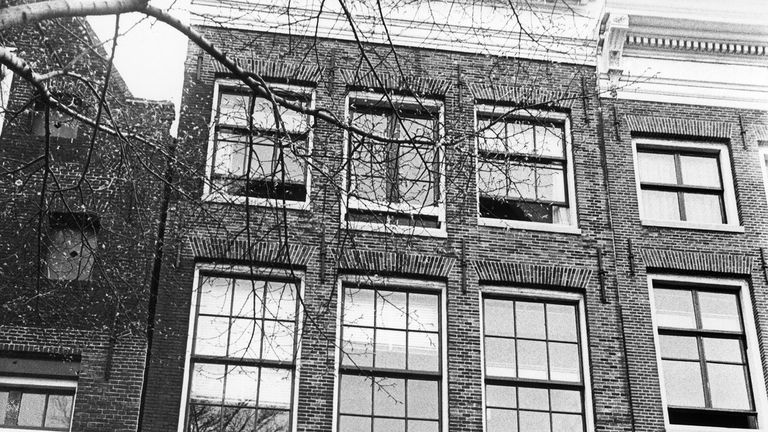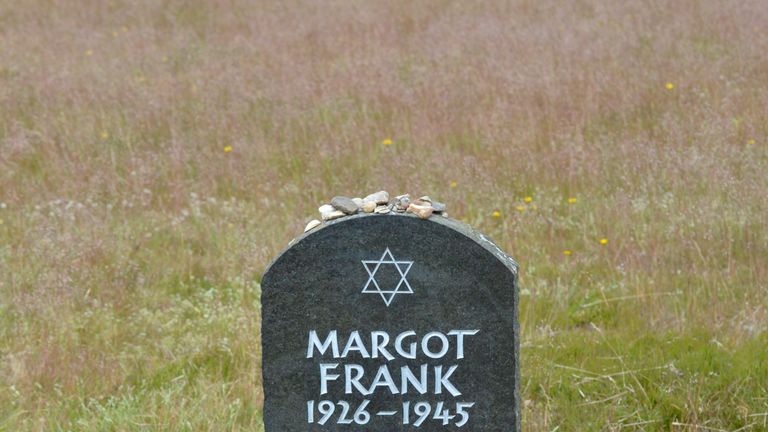Ex-FBI agent investigates betrayal of Anne Frank
A team of 20 investigators are hoping to find out how the Jewish girl and her family were discovered by Nazi occupation police.
Tuesday 3 October 2017 22:53, UK
A new investigation is hoping to use big data and modern police methods to finally discover who betrayed Anne Frank.
The young Jewish girl's diary, written while she was in hiding with her family in Amsterdam, has sold millions of copies worldwide.
But to this day it remains unclear how Nazi occupation police discovered the Frank family - and whether they were betrayed or discovered by accident.
The new investigation will be led by former FBI agent Vincent Pankoke, who described it as "the ultimate cold case".
He said: "Seventy three years after the arrest, forget forensic evidence, most of the people who could give witness statements are no longer alive."
Instead, the team will compile a master database of information that they hope will shed new light on the case.
The database will contain lists of Nazi collaborators, informants, historic documents, police records and prior research.
"We are going to load every piece of data we can find from the time period," said Mr Pankoke.
"There is so much information that is out there that has never been looked at."
Leading historians from the Dutch Second World War research centre, NIOD, are serving as consultants on the project.
But the team is also using new algorithms developed by data company Xomnia to search for new leads among the information in their database.
The algorithms will search for previously uncovered links - and according to Mr Pankoke, the technology will be able to review more evidence than a human being could in a lifetime.
A team of 20 people will be working on the case, which is aimed to be finished by 4 August 2019 - 75 years after Anne Frank was arrested.
The latest attempt to solve the case is supported by the Anne Frank Foundation, which maintains the family's house in Amsterdam.
"We shared our investigation on the arrest," said the foundation's spokeswoman Annemarie Bekker.
"It looks good and we are curious about their results."
The team behind the investigation say the aim is not to prosecute any potential culprits, but simply to solve the case once and for all.
"We are doing it because we feel the case must be solved," said Dutch filmmaker Thijs Bayens, who helped launch the project.
The team are looking to raise $5m (£3.8m) through crowdfunding to finance the project.






